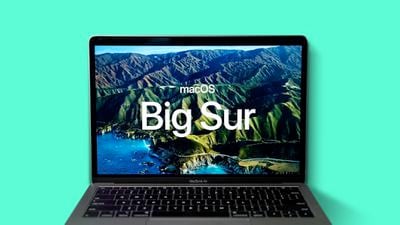macOS Big Sur 11.2 Beta 2 Removes Feature Letting Apple Apps Bypass Third-Party Firewalls and VPNs
macOS Big Sur 11.2 beta 2, which was released yesterday, eliminates a feature that allowed Apple apps bypass third-party firewalls, security tools, and VPN apps, according to reports from ZDNet and security researcher Patrick Wardle.

macOS Big Sur 11 included a ContentFilterExclusionList that let Apple's apps like the App Store, Maps, iCloud, and more to avoid firewall and VPN apps that users had installed. These apps were not able to filter or inspect traffic for some built-in Apple apps.
Security researchers believed that the feature, found last October, was a major security risk as malware could be designed to latch on to a legitimate Apple app and bypass security software. Users who had VPNs installed also risked exposing their real IP address and location to Apple's apps.
Apple told
ZDNet last year that the list was temporary and the result of a series of bugs related to the deprecation of network kernel extensions in macOS Big Sur. Apple has been addressing those bugs, and in the second beta of macOS Big Sur released yesterday, removed the ContentFilterExclusionList from the macOS code.
When macOS Big Sur 11.2 sees a release, Apple apps will be compatible with VPN apps and will no longer be able to bypass firewalls and other security tools.
Popular Stories
Apple's next-generation iPhone 17 Pro and iPhone 17 Pro Max are less than three months away, and there are plenty of rumors about the devices.
Apple is expected to launch the iPhone 17, iPhone 17 Air, iPhone 17 Pro, and iPhone 17 Pro Max in September this year.
Below, we recap key changes rumored for the iPhone 17 Pro models:Aluminum frame: iPhone 17 Pro models are rumored to have an...
The long wait for an Apple Watch Ultra 3 appears to be nearly over, and it is rumored to feature both satellite connectivity and 5G support.
Apple Watch Ultra's existing Night Mode
In his latest Power On newsletter, Bloomberg's Mark Gurman said that the Apple Watch Ultra 3 is on track to launch this year with "significant" new features, including satellite connectivity, which would let you...
The upcoming iPhone 17 Pro and iPhone 17 Pro Max are rumored to have a slightly different MagSafe magnet layout compared to existing iPhone models, and a leaked photo has offered a closer look at the supposed new design.
The leaker Majin Bu today shared a photo of alleged MagSafe magnet arrays for third-party iPhone 17 Pro cases. On existing iPhone models with MagSafe, the magnets form a...
iOS 26 and iPadOS 26 add a smaller yet useful Wi-Fi feature to iPhones and iPads.
As spotted by Creative Strategies analyst Max Weinbach, sign-in details for captive Wi-Fi networks are now synced across iPhones and iPads running iOS 26 and iPadOS 26. For example, while Weinbach was staying at a Hilton hotel, his iPhone prompted him to fill in Wi-Fi details from his iPad that was already...
The iPhone 17 Pro Max will feature the biggest ever battery in an iPhone, according to the Weibo leaker known as "Instant Digital."
In a new post, the leaker listed the battery capacities of the iPhone 11 Pro Max through to the iPhone 16 Pro Max, and added that the iPhone 17 Pro Max will feature a battery capacity of 5,000mAh:
iPhone 11 Pro Max: 3,969mAh
iPhone 12 Pro Max: 3,687mAh...
Apple today seeded the second betas of upcoming iOS 18.6 and iPadOS 18.6 updates to public beta testers, with the betas coming just a day after Apple provided the betas to developers. Apple has also released a second beta of macOS Sequoia 15.6.
Testers who have signed up for beta updates through Apple's beta site can download iOS 18.6 and iPadOS 18.6 from the Settings app on a compatible...
Apple is developing a MacBook with the A18 Pro chip, according to findings in backend code uncovered by MacRumors.
Subscribe to the MacRumors YouTube channel for more videos.
Earlier today, Apple analyst Ming-Chi Kuo reported that Apple is planning to launch a low-cost MacBook powered by an iPhone chip. The machine is expected to feature a 13-inch display, the A18 Pro chip, and color options...




















